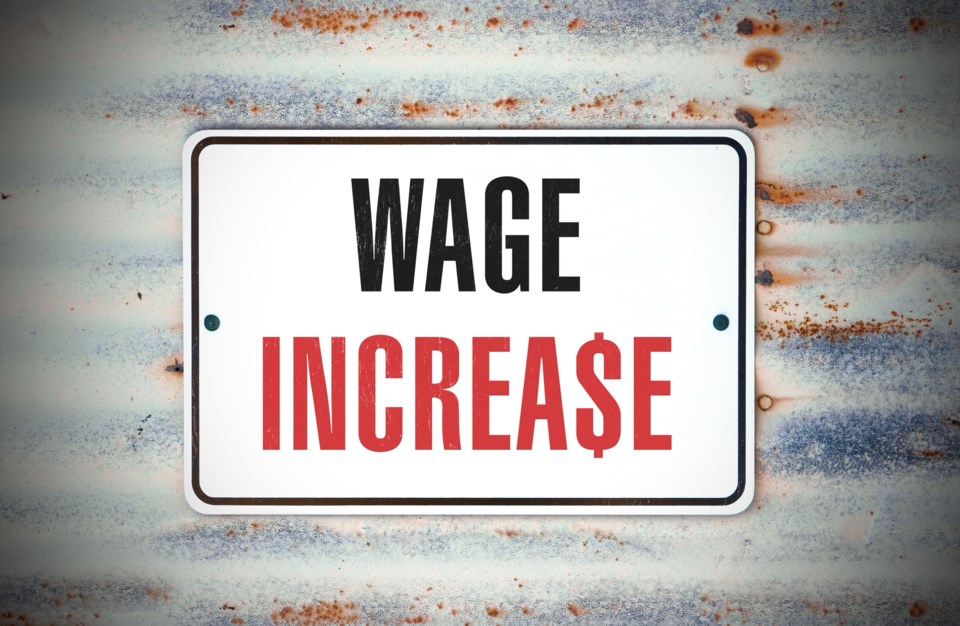Grocery prices have been growing like grass after the rain, at least since the beginning of 2022, and have been even worse lately.
Fuel prices have been spiking since February. Prices of things like vehicles, especially used ones, appliances and fertilizer have been almost like a forbidden ground for the last year and longer.
Everything adds up quickly, making our already over-indebted lives even less affordable. And low-income families are hurt even worse.
So the announcement of the minimum wage increase for Saskatchewan came pretty naturally last week. In early May, the government of Saskatchewan announced that the minimum wage will go up 27 per cent before the end of 2024.
As of Oct. 1, 2022, the provincial minimum wage will increase from the current $11.81 to $13 per hour. The next change will occur in a year. Starting Oct. 1, 2023, the minimum wage will jump to $14 per hour and on Oct. 1, 2024, it will increase to $15 per hour.
Labour Relations and Workplace Safety Minister Don Morgan noted that the move is the result of upward pressure that global events keep putting up the cost of living. The wage increase is supposed to improve the situation for the people of Saskatchewan by ensuring a more appropriate income level for low-income residents to handle the growing cost of living.
The changes are also to make Saskatchewan more attractive in sense of bringing in new jobs and investments, and consequently improving the standard of living for people in general.
Currently, Saskatchewan is last among all Canadian provinces and territories on the minimum wage list, with Manitoba superseding it by 14 cents. The top positions belong to Nunavut with a $16 per hour minimum wage, followed by Yukon ($15.70), Northwest Territories and B.C. ($15.20), and Alberta and Ontario ($15), with other provinces spread between $15-11.81.
The federal rate is $15.55, which means that even if nothing changes over the next few years, which is highly unlikely, Saskatchewan will still be slightly below the federal level. However, $15 per hour definitely looks more appealing than Saskatchewan's current $11.81.
At the first sight, the minimum wage increase seems to be a big win for everyone.
Higher earnings should move more Saskatchewan families out of poverty, which also means that potentially fewer people will rely on the government's financial support. At the same time, a minimum wage increase may boost the economy. Put it simply, if people make more money, we spend more money.
Besides, higher wages in general and especially for low-income workers are known to increase morale and may affect the interest and effort employees put into work. While it's something difficult to measure directly, in the long run, it should translate into increased employee retention and reduced recruitment and training costs. On top of that, a higher level of morale and engagement should affect the level of service.
But while the increase of the minimum wage may seem like the most natural move in the current situation, unfortunately, it's not that straightforward.
One of the main serious potential issues is that the increase in the minimum wage may result in the growth of unemployment for low-skilled workers and young people. As the cost of labour grows, employers tend to reduce the number of employees and/or their work hours to absolutely necessary. Cutting expenses is only a natural reaction to growing costs, aimed at keeping the balance.
Besides, the increase in minimum wage usually results in growth in wages and salaries across the board, which affects the operating expenses for businesses. And in the end, even with cuts, it may lead to increased prices of products and services. (While employees' wages are not the base for the cost of the product, they do affect the total).
And here we go again, needing to raise the minimum wage to make life affordable for low-income families.
When you look at the minimum wage increase from the perspective of inflation, it does sound like a vicious circle, doesn't it?
On top of that, higher labour costs also may redirect the employers towards outsourcing more jobs to less expensive foreign labour markets, which would result in a higher and broader job loss in the short run, and potentially fewer investments, and thus less growth and development for Canadian industries in the long-term.
Another potential risk is higher competition for minimum wage jobs. Here is an example. When I just came to Estevan I was shocked by how much money people were making in the oilfield. Any low-skilled job was paying well – as much or even more than I could make with my degree. Of course, it wasn't about minimum wage, but rather about a particular industry, but my first reaction was to give up my education and experience and try finding a way to get into the oilfield, ready to take any job.
With a higher minimum wage, over-qualified workers may start taking minimum wage positions, which would prevent the new, less experienced generation from entering the market.
Bottom line, the minimum wage increase is expected to provide a better living for many people in Saskatchewan, thus also improving work ethics and potentially boosting the economy. It may come with some possible negative consequences, such as growing inflation and/or job losses.
But one way or the other, the decision is made, so soon we will see which way this change takes us.





